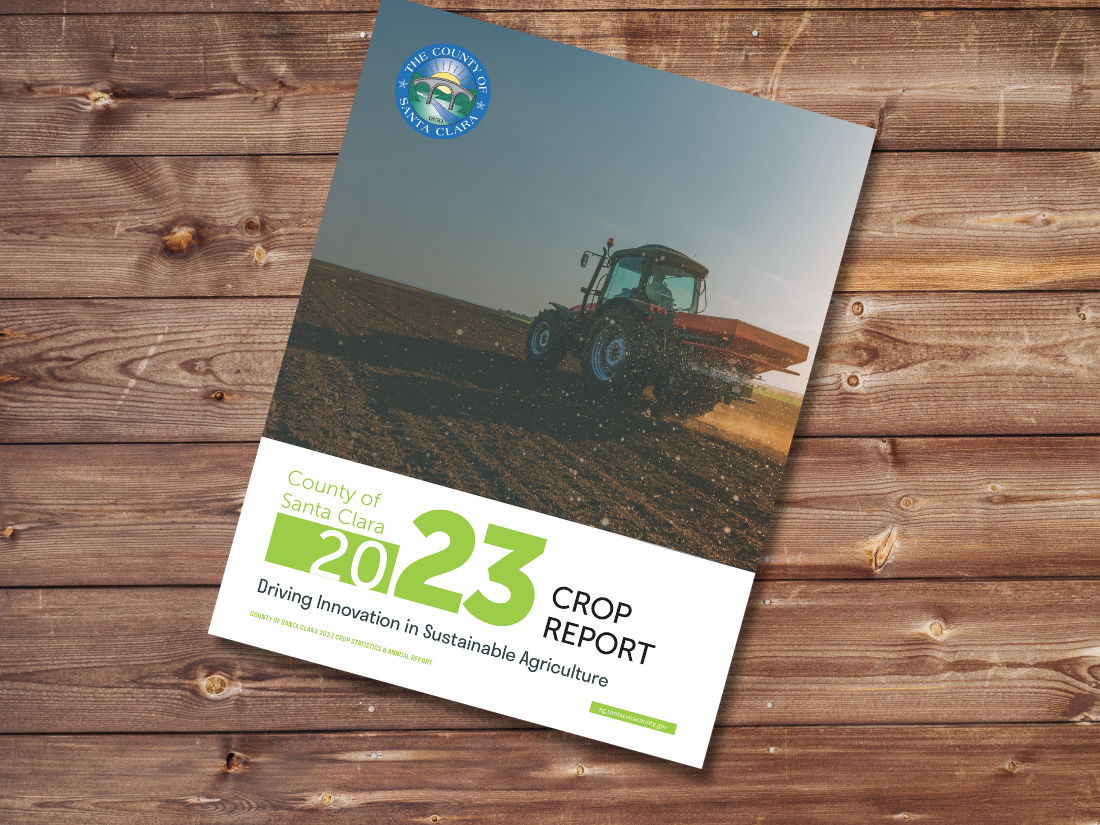
The County of Santa Clara released its 2023 Crop Statistics and Annual Report on October 21, 2024. According to the County News Center, Office of Communications and Public Affairs,
“The 2023 report highlights the intersection of innovation and agriculture. Silicon Valley, known for its tech innovation, is also leading the way in agricultural innovation. Anaerobe Systems, a local business creating sustainable fertilizer from agricultural waste, is one such company highlighted in the report.”
The following is the article about Anaerobe Systems excerpted from the County of Santa Clara 2023 Crop Statistics and Annual Report released on October 21st, 2024:
Mike Cox is a resident of Morgan Hill and the founder of Anaerobe Systems. Cox has revolutionized the microbiology industry by developing fast-growing culture media for anaerobic bacteria as well as the first gloveless anaerobic chamber. These technologies enable microbiologists to quickly isolate and identify anaerobic bacteria, making lab and clinical research more efficient. When Cox moved his company to Morgan Hill, he saw the potential to use its research facility for other applications in microbiology – notably, in supporting local agriculture.
ox realized there was rich organic material in what many southern Santa Clara County farms were throwing away as agricultural waste. Chiala Farms, for example, may produce up to 50 tons a day of bell pepper stems, seeds, and culls during growing seasons. Cox is committed to recycling organic material from local farms and converting it into useful products that benefit soil health. In 2019, using its continuous anaerobic fermentation system, Anaerobe Systems launched organic liquid fertilizer and biochar soil amendment products.
These products are locally produced using a two-day fermentation process, much faster than traditional composting, which can take up to 45 days. Both products are unique in that they are made using fermented crop biomass. They return nitrogen-fixing microbes and other essential nutrients to the soil. While synthetic fertilizers may require the application of hundreds of pounds per acre, Anaerobe Systems’ liquid fertilizer requires significantly lower quantities to increase harvest yields, while also improving soil health. The company’s biochar amendment promotes plant growth by retaining water, sequestering carbon, and supporting microbial diversity.
The fermentation process that creates Anaerobe Systems’ fertilizer and biochar soil amendment releases hydrogen as a byproduct. This hydrogen can be captured and converted into bioenergy, an alternative form of energy that produces fewer greenhouse gas emissions than conventional fuels. The energy produced could be used to run Anaerobe Systems’ local power plants and fermenters, making its facilities self-sufficient and independent from the electricity grid.
Cox is working to expand his research facility to produce more microbes that are beneficial to agroecology. In the future, Cox hopes to see similar sustainable innovations in agriculture that preserve rather than harm the environment. By recycling agricultural residues, applying organic fertilizers, and utilizing cleaner energy sources, farms can work toward achieving a zero-carbon footprint.
Excerpt shared with permission. Download the complete Santa Clara County Crop Report.
In October 2022, Emma Bryce of Anthropocene…
Nursery Crops and Mushrooms Lead the Way…
What does a vine root know, and…
Sustainability Now | Episode 049 | Biofermentation:…